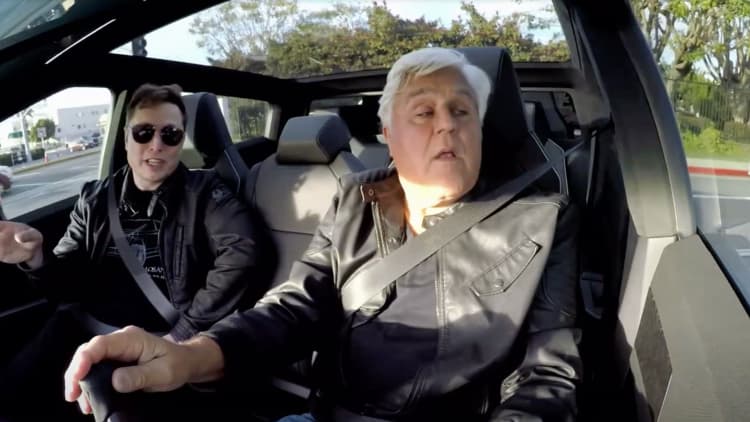British inventor and billionaire Sir James Dyson scrapped plans to mass-produce an electric SUV in October after deciding it would not be "commercially viable," ending a bid to join a list of rivals to Tesla that already includes startups like Rivian and Byton.
Now, Dyson — who is best known as the founder of the eponymous brand that makes appliances from bagless vacuums to hairdryers — has unveiled photos and videos of the prototype electric SUV he and a team of engineers designed.
After recently telling London's Sunday Times that he spent more than $600 million of his own money on the electric SUV project, Dyson wrote in a blog post on Wednesday that his team had "developed a radical car which was loaded with technology" and that he says was "ready for production."
Dyson has an estimated net worth of roughly $6.3 billion, according to Forbes.
Dyson's engineers designed the electric vehicle "from the ground-up," the billionaire writes, and built a basic platform for the SUV that could have also been used eventually to build other vehicle types (similar to the way Tesla's Model Y SUV is built on the same platform used by the Tesla Model 3 sedan).
The platform could also adapt to different driving situations. When building speed, the Dyson electric SUV's platform would be able to "drop itself down to be more aerodynamic and then it could be raised up to give it even more ground clearance," Dyson writes.
The Dyson electric SUV reportedly aimed to offer a range of 600 miles with a 150 kilowatt-hour battery pack (by comparison, Tesla's Model Y SUV has a range of up to 300 miles). In the blog post, Dyson touts the SUV's "highly efficient Electric Drive Unit (EDU) comprising Dyson digital electric motor, single speed transmission and state of the art power inverter."
"When I first drove our car, I felt exactly the same as when I first used our hairdryer prototype, or the vacuum cleaner — I enjoyed it, but I was not surprised, in fact we immediately looked for improvements," Dyson writes.
He also notes the SUV's interior that has three rows of seats and room to fit "seven adults in comfort."
"We wanted a more elegant, structural seat, with well-considered posture support. When you sit in this, it gives you that support in all the right areas," Dyson adds, referring to the SUV's seats that have a unique design with segmented cushions.
However, as his company had previously hinted, the costs of mass-producing the Dyson electric SUV turned out to outweigh the revenue the company expected to bring in with the vehicle.
"Electric cars are considerably more expensive to make and manufacturers are making big losses on the sale of each car," Dyson writes. "These losses matter less to them because the sales of electric cars allow them to offset against selling traditional vehicles on which they make a good profit."
Because Dyson does not make other, non-electric vehicles to offset the expected losses of producing an electric SUV, James Dyson continues in the blog post, the company "realized that our car was suddenly no longer commercially viable."
(To be fair, Tesla does not produce any non-electric vehicles, though the high costs of making electric vehicles has helped to prevent Elon Musk's company from ever recording an annual profit. In 2019, Tesla lost $862 million in total, on a GAAP basis, though the company has posted three straight profitable quarters, through the first quarter of 2020.)
Dyson adds that it was difficult to cancel the electric SUV, "because hundreds of engineers, scientists and designers, had poured everything into the project and it was a great engineering achievement."
And despite eventually scrapping the project, Dyson says now he has "no regrets" about having set out to build an electric vehicle, because the company "learned a lot" from the automotive engineers Dyson brought in to work on the process.
Of course, even with Dyson's electric SUV project cancelled, the auto industry is still producing a number of competitors to Tesla's Model Y. Several major auto manufacturers have either produced their own electric SUVs, or have them in the works, with Ford's Mustang Mach-E and General Motor's Hummer EV SUV among the most recently announced entrants to the space.
Check out: The best credit cards of 2020 could earn you over $1,000 in 5 years
Don't miss:
Take a look inside three of the most expensive electric cars


